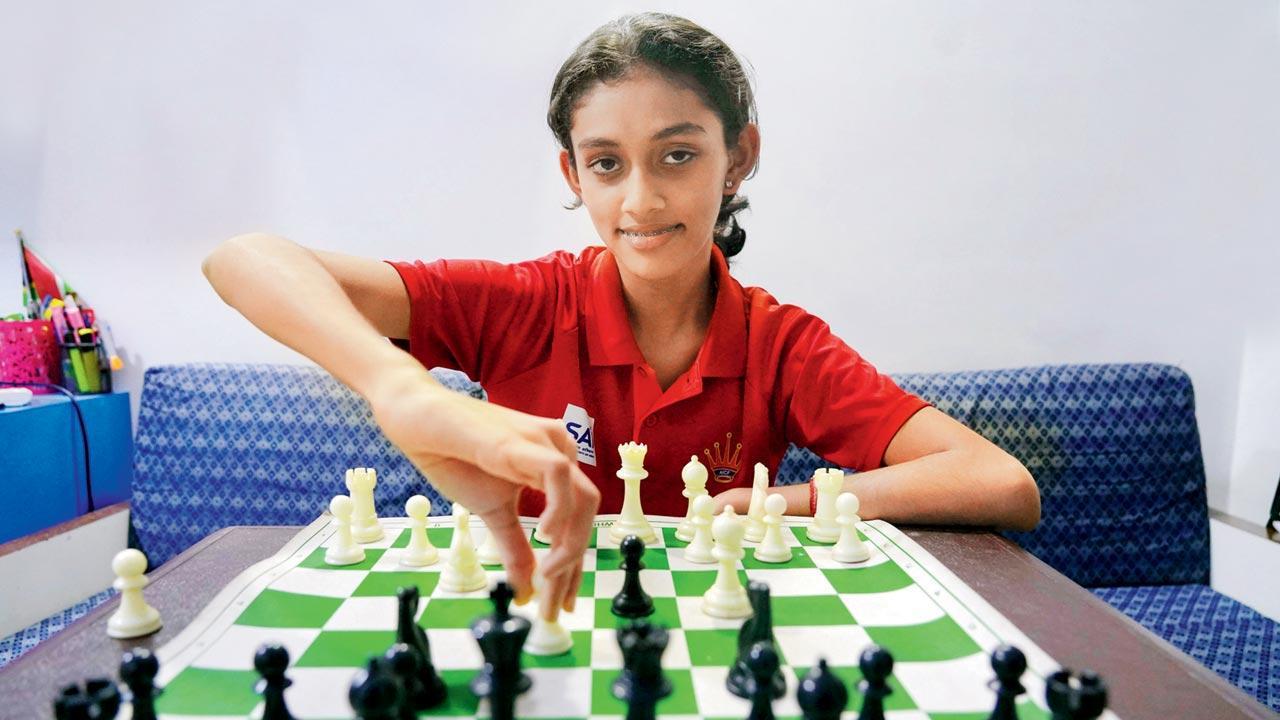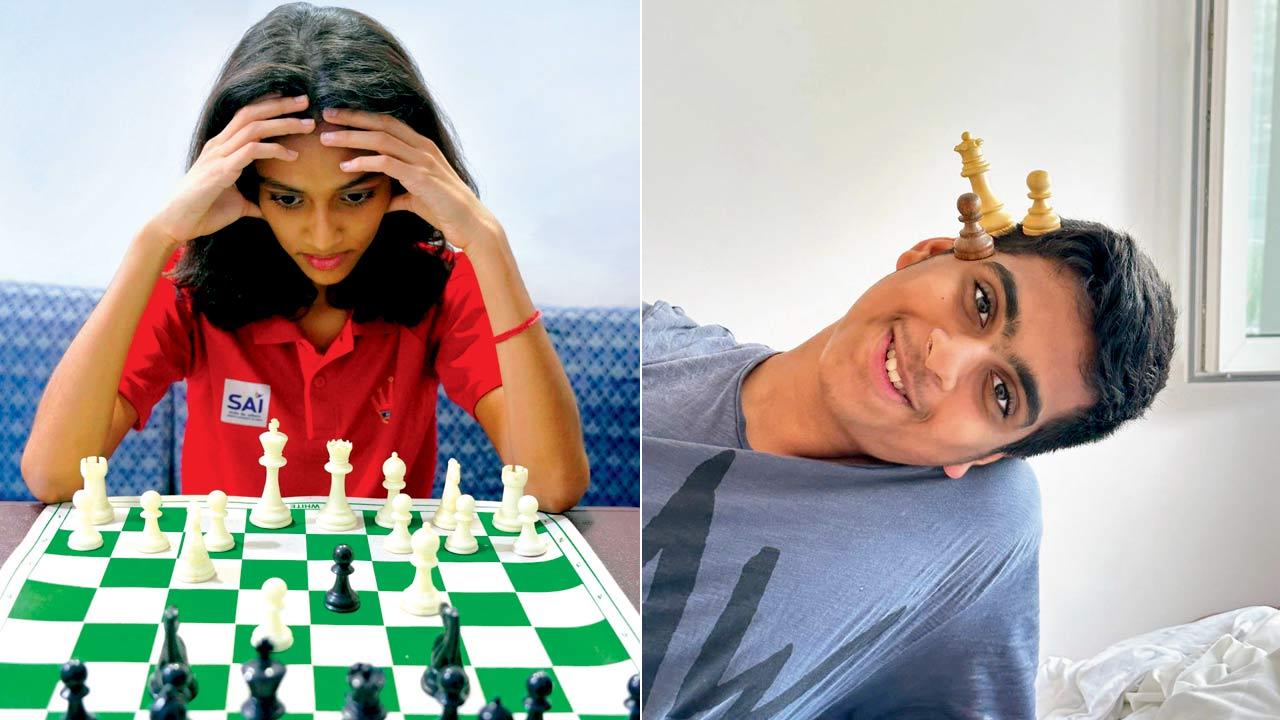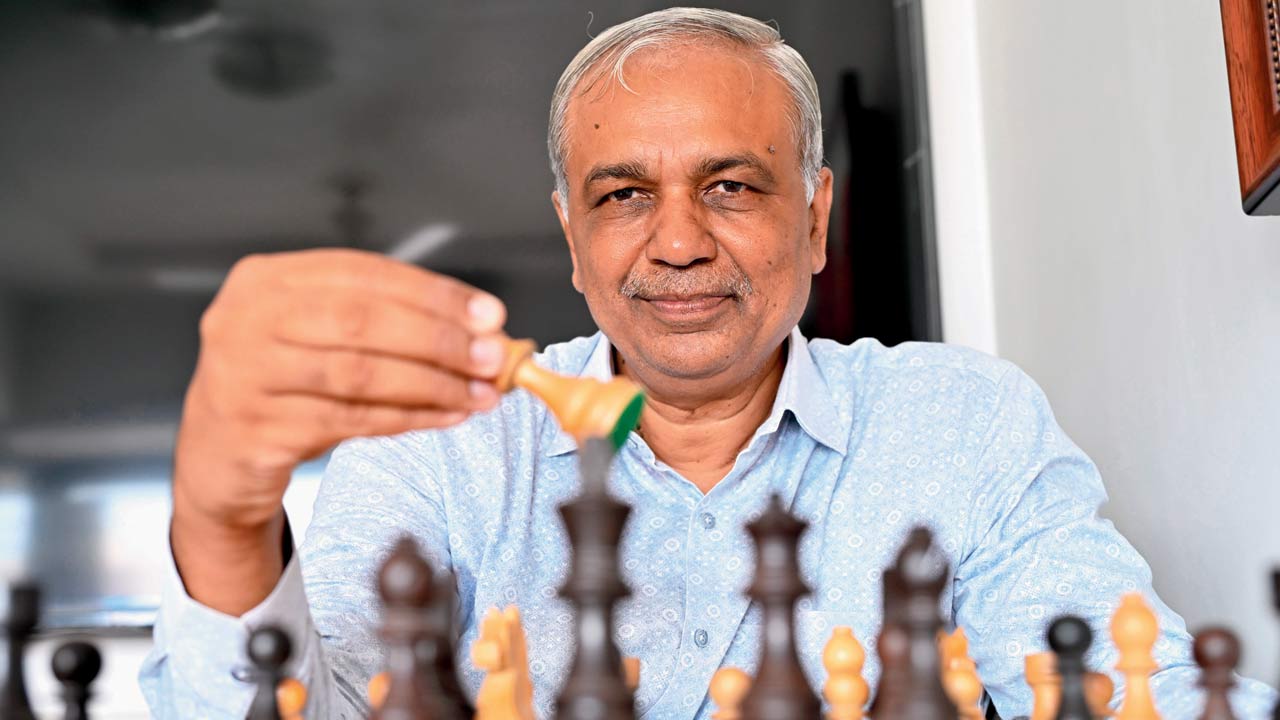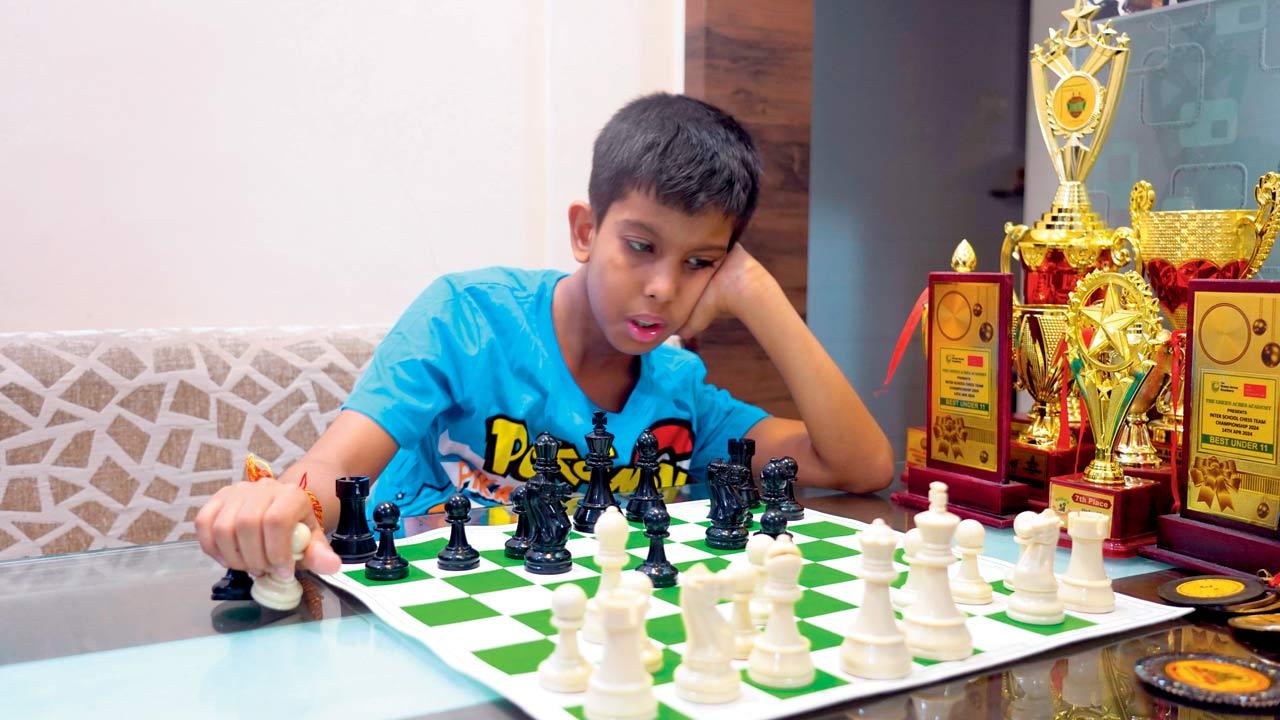Chess, which was born out of the Indian game Chaturanga, is not an after-school activity anymore. Inspired by the recent wins, parents and coaches are making sure schoolchildren are ready to add to India’s champion arsenal

Thirteen-year-old Prisha Kesarwani has a glittering array of medals and trophies lined up, and the Olympiad gold has cemented her decision to keep at the game. Pic/Aditi Haralkar
Hung(a)ry kya? Is a question that is being met with a resounding: “Yes for chess” after India won a double gold in the Open and women’s section of the Chess Olympiad in Budapest.
It has fuelled the fire in aspiring masters such as 10-year-old Dhyan Vora from Juhu. “I was following the Chess Olympiad religiously,” he says excitedly, “and was really scared when India was playing China. It was so close.” D Gukesh is Dhyan’s favourite player. “I want to play the Nationals and these players keep inspiring me to do better,” says the Chatrabhuj Narsee Memorial School (CNMS) Vile Parle student who spends at least two-and-a-half hours at the board daily.
Dhyan loves cricket too. “My favourite cricketer is Yuzvendra Chahal as he is a chess player too, who has represented India,” he said of hook and rooks
going together.
 Prisha Kesarwani, 13, started playing when she was five years old. Pics/Aditi Haralkar; (right) Kush Bhagat, 15, has taken a gap year from his school, to try for an International Master title this year
Prisha Kesarwani, 13, started playing when she was five years old. Pics/Aditi Haralkar; (right) Kush Bhagat, 15, has taken a gap year from his school, to try for an International Master title this year
Dhyan’s mother Neha explains how her son got into the mind game: “Dhyan started playing chess during the COVID19-induced pandemic. His grandmother is a very good player and introduced him to the game. Though so young at the time, the game sparked interest, which transformed into passion and it has been a journey of milestones from then on. He played the State Selection for U-11 in Kolhapur and will now move on to the Nationals. Besides daily practice, he plays a tourney every Sunday.” Neha recalled how, “Watching the Chess Olympiad became a daily ritual for us. Our fervent prayers and loud cheers carried on from our Juhu Cross Lane home all the way to Budapest.”
Dhyan goes to the Indian Chess School in Peddar Road, founded by Praful Zaveri. The latter teaches chess to children aged seven to 14 years. Praful, who likes to go by his first name, sees Indian chess hit the high water mark today, “with our sensational Olympiad double gold.”
Praful—who was nominated coach of the Indian Youth Chess Team at the Asian Schools, Taiwan in 2014, World Schools, Thailand and Asian Youth, South Korea the year after, at the World Cadets, Brazil, 2017 and Abu Dhabi Masters in 2019—believes these massive wins springboard significant development.
 Praful Zaveri, coach, Indian Chess School. Pic/Nimesh Dave
Praful Zaveri, coach, Indian Chess School. Pic/Nimesh Dave
“This should spur schools across the city to include chess as a regular subject in the curriculum,” he says. “Chess classes are usually an after-school activity. It should become mainstream maybe as an optional subject, but a proper subject nevertheless that finds its place within regular classes and school timings.” Praful said this ‘move’ (pun intended) will ensure, “that children cut their chess teeth in school, give us a wider talent pool and chess will also be accorded the seriousness of a subject in the school syllabus.”
Praful’s words of chess ‘whiz’dom are encapsulated in eight chess manuals he has written titled The Chess Course. “The key takeaway from this Olympiad win is the confidence the players displayed, emanating from solid pre-tourney preparations,” says the Borivli-based teacher on an upbeat note. “Huge practice, play, a disciplined approach meant our teams were laser-sharp going into Hungary. There was a lot of optimism amongst chess followers too, given that we came very close in the past two Olympiads, winning a bronze medal; Gold was missing from our kitty. Today it is here, signed, sealed and delivered; it’s a tsunami of celebrations.”
While the Olympiad is sure to give the game a huge fillip, parents and coaches stress the game has huge positive spin-offs beyond titles and trophies. They were unanimous in citing how it teaches logical thinking, a quality useful on the chessboard of life. Praful added that the Budapest bravo shows, “is something to be very proud of not just for Golds, but as a reminder that chess is an Indian game. It is in our roots and our gift to the world. The game showcased our intellectual power, and with this domination, in a way, we are reclaiming our legacy.”
 Dhyan Vora, 10, started playing chess during the pandemic and has competed in the state selection for U-11 in Kolhapur
Dhyan Vora, 10, started playing chess during the pandemic and has competed in the state selection for U-11 in Kolhapur
Prachi Kesarwani from Andheri (W) is one of those parents who advocates for chess because of the logical thinking and sound decisions it enables children to take.
Her daughter Prisha, a 13-year-old at Arya Vidya Mandir School in Juhu, is a rated player in all three formats of the game. She has a glittering array of medals and trophies lined up, and the Olympiad gold has cemented that decision to stay in the game.
“The journey began when Prisha was five,” says Prachi. “She would play with her elder brother, and we were struck by how she could sit and concentrate for two hours straight at that age. Then she started playing for three-and-a-half to four hours. When our chess journey truly began, with practice and travelling to tourneys, my career had to take a back seat. But it is all worth it. The Olympiad golds have come at the right time. We are halfway through our journey, and at the right page in the book. Sometimes it is challenging to balance academics and chess, though the school is accommodating and encouraging. We are not leaving the game for sure.”
Prisha was “amazed by the accuracy of our Indian players’ games in Budapest. The never-say-die attitude and eventual medal have motivated me to excel. The consistency maintained throughout the tournament by Gukesh D, Divya Deshmukh, Arjun Erigaisi and Vantika Agarwal has taught me the importance of perseverance and dedication. My favourite game of the tournament has to be the one between Gukesh D and Wei Yi which taught me a very important lesson: Stay tough.”
Gukesh showed huge talent while making extremely accurate moves under pressure. His resolve try till the last to succeed fired me up with energy and enthusiastic about every single game.”
Prisha also noticed the camaraderie of the team, saying it pushes her to do her best. “The dream is, of course,” she says, “to one day wear the national colours and contributing to our country’s legacy.”
With the scene becoming so sunny, we may need shades just to talk about it. This increases avenues for coaches and trainers too. “This can be a viable option now [as a profession],” says coach Balaji Guttula. “Post playing professionally, players get coaching and teaching opportunities. Now someone who has invested so many years in the game can stay connected to it.” Speaking specifically about Hungary, he adds, “Look at the ages of the players. Most of them are teenagers, a product of coming through the system where the competition is extremely fierce in lower age categories such as seven to nine. That is the fruit it has borne.”
Kush Bhagat, 15, who is coached by ‘Balaji sir’, has taken a gap year from his extremely supportive American School to try for an International Master title this year. “I will be playing in Hungary and Norway in the coming week,” says the Mahalaxmi resident, “The shadow of our recent wins falls long on the chessboard. I was especially struck at the phlegmatic, clinical manner of the wins. That mental strength, calmness is a key takeaway.”
Kush’s mother Shilpa adds, “Titles, medals are for the trophy case. Chess builds grit and character, which spills over onto all facets of life. In India, there is the tendency to quantify things, for instance: I put this much into it in terms of sacrifices, finances… What do I get in return? I think we need to steer away from that. Kush’s school is open-minded, and yet, taking a gap year is an immensely courageous decision. I am so proud of him.”
Running through all these accounts are some commonalities: The time to be a chess player, fan, aficionado, follower is now. India may start building its champ arsenal if the game is a regular school subject, as it is in Armenia.
There’s cutthroat competition in the lower age groups, and that test of fire makes fine steel. ‘Pawn’ography is not a bad thing and the desi game is moving to its zenith in the land of its birth. Move over, Mr Michael Jackson. India proves it matters if it’s black or white.
 Subscribe today by clicking the link and stay updated with the latest news!" Click here!
Subscribe today by clicking the link and stay updated with the latest news!" Click here!








